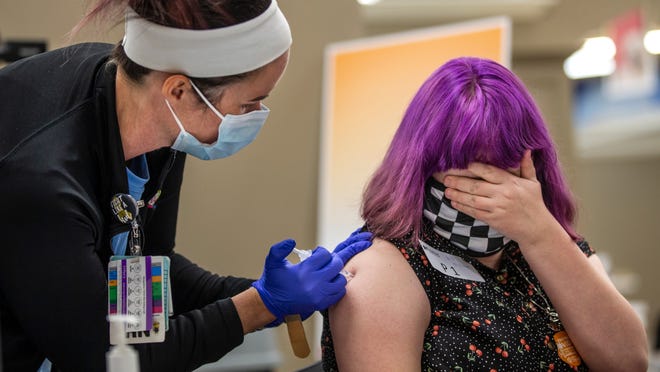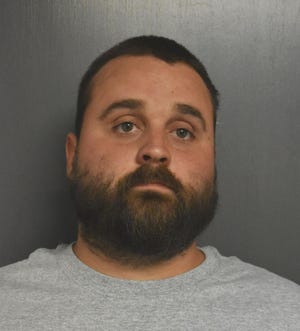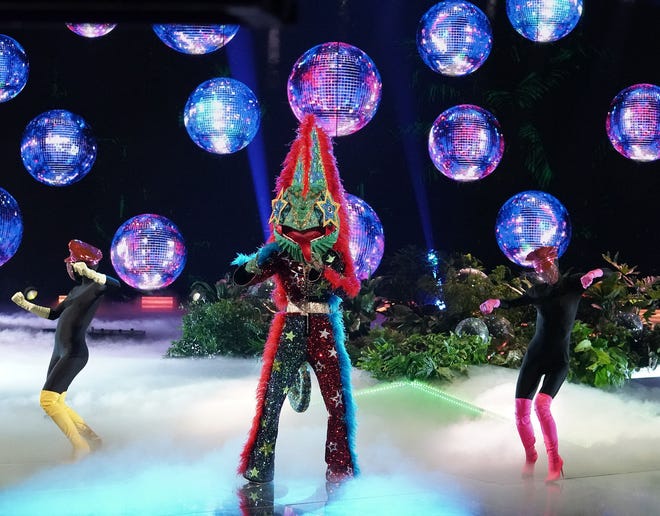
Days after a U.S. intelligence report revived concerns about the origins of COVID-19, President Joe Biden said Wednesday he has asked the intelligence community to "redouble" its investigatory efforts into how and where the coronavirus emerged.
"I have now asked the Intelligence Community to redouble their efforts to collect and analyze information that could bring us closer to a definitive conclusion, and to report back to me in 90 days," Biden said in a statement.
The order comes after reports that three researchers at a lab in Wuhan, China, the city where the coronavirus pandemic is believed to have originated, fell sick in the fall of 2019.
Also in the news:
►Baltimore City Schools won’t require tens of thousands of students failing classes amid challenges posed by the pandemic to repeat a grade in the fall. Chief Academic Officer Joan Dabrowski says students will get customized instruction plans.
►Michigan's Ann Arbor Art Fair is back. Organizers said the fair, which draws thousands of people to the streets of the college town, will be held July 15-17.
►U.S. air travel rose to the highest level since the start of the pandemic Sunday at 1.8 million travelers, the Transportation Security Administration reported Tuesday.
►Even though the pandemic is waning in the U.S., there have already been more COVID-19 infections worldwide this year than in all of 2020. Here's a graphic look at how much the coronavirus has spread globally.
►Royal Caribbean's Freedom of the Seas will be the first cruise ship allowed to sail in U.S. waters as a test after a 15-month ban on cruises because of the pandemic.
? Today's numbers: The U.S. has more than 33.17 million confirmed coronavirus cases and 591,100 deaths, according to Johns Hopkins University data. The global totals: More than 167.9 million cases and 3.48 million deaths. More than 359 million vaccine doses have been distributed in the U.S. and more than 287.7 million have been administered, according to the CDC. More than 131 million Americans have been fully vaccinated – 39.5% of the population.
? What we're reading: The federal government has given the OK for states to offer cash incentives to encourage residents to get the COVID-19 vaccine. Read more about the opportunities.
Keep refreshing this page for the latest updates. Want more? Sign up for our Coronavirus Watch newsletter for updates to your inbox and join our Facebook group.
William Shakespeare, first man to get vaccinated, dies at 81
William Shakespeare, the Englishman who made news around the world as the first man to receive an authorized coronavirus vaccination, has died of a stroke unrelated to the virus or the vaccine, authorities in Britain said.
Shakespeare, 81, was the second person to be vaccinated on Dec. 8 at University Hospital Coventry, 100 miles northwest of London, shortly after Margaret Keenan, 91, received the first jab of Pfizer BioNTech's COVID-19 vaccine outside of clinical trials. A few days later the massive U.S. vaccination campaign began.
Coventry politician Jayne Innes said Shakespeare died last week. "Greatly saddened and upset to hear our friend, the very lovely Bill Shakespeare, has passed away," Innes tweeted. "Bill will be remembered for many things, including a taste for mischief. He became an international sensation as the first man to receive a COVID vaccine."
Shakespeare's vaccination launched a social media play on words as “The Taming of the Flu” – a nod to the 16th-century play “The Taming of the Shrew.” His famous name helped put him on the front page of newspapers around the world, and Innes noted on Twitter that "our lovely friend Bill would never have dreamt his passing would make the New York Times."
England has one of the world's highest vaccination rates.
"He would always encourage everyone to get their vaccine," his wife, Joy, said in a statement. "It was something he was hugely proud of. He loved seeing the media coverage and the positive difference he was able to make to the lives of so many."
Hawaii drops outdoor mask mandate
Hawaii Gov. David Ige said people will no longer have to wear masks outdoors as the number of COVID-19 cases drop and more people get vaccinated. The governor said he would maintain a requirement that people wear masks indoors. The same rules will apply regardless of whether someone is vaccinated. Still, the governor said he would encourage those who are in large groups outside to continue to wear masks.
“The virus is still circulating in our community and unvaccinated people are particularly at risk," he said. And until more are vaccinated, we must continue to take precautions indoors and in large groups."
Data continues to show promise as pandemic eases
Daily coronavirus cases continue to trend downwards in most states, falling by an average of 26,000 in the past month, according to data from Johns Hopkins University and the Centers for Disease Control and Prevention. Deaths are also down in the nation. On Jan. 13, the country reported 3,555 deaths, said Andy Slavitt, White House coronavirus response senior adviser, on Twitter. On Tuesday, there were 358 deaths in the country, according to Slavitt.
The vaccination rate for U.S. adults surpassed 50% Tuesday, according to the White House. At least 25 states have fully vaccinated at least half of their adult residents, according to data from the CDC.
Schools will soon be flush with cash. Will it help kids most in need?
School districts are poised to spend a windfall of federal money as $81 billion from the latest relief package flows into their coffers this week. But how effectively the record education spending will help jumpstart learning, fully reopen schools and address students' social and mental health needs remains a key question. States must notify the federal government of their plans for the money by June 7.
"One of the expressed purposes is to focus on students who were most impacted by the pandemic and on addressing their academic and social needs," Ian Rosenblum, assistant secretary at the Department of Education, told USA TODAY.
– Erin Richards
Feds give thumbs-up to cash incentives for vaccinations
The federal government has given the OK for states to offer cash incentives to encourage residents to get vaccinated. The Treasury Department has updated its guidance for how states and local governments can spend billions of dollars in aid included in the $1.9 trillion coronavirus relief package that passed in March. Lotteries, cash payments or other incentive programs are allowed as long as they are “reasonably expected” to increase vaccinations and the costs are “reasonably proportional” to the expected public health benefit.
“We are nothing if not responsive to good ideas,” said Andy Slavitt, the White House senior adviser on COVID-19 response. “We encourage states to use their creativity to draw attention to vaccines and get their states and the country back to normal as quickly as possible.”
– Maureen Groppe
Report: Black people make up 8 in 10 COVID cases in Washington
Black residents of Washington, D.C., make up more than 80% of coronavirus cases, according to new data analyzed by the Washington Post. Although Black and white residents respectively make up 46% of the total population, according to the U.S. Census, white people account for less than 10%t of cases in recent days.
The spike displays the nation's racial divide and reflects issues of accessibility when it comes to disseminating the COVID-19 vaccine. The Post’s tracker reported that 44.5% of the city’s population has received the vaccine. For about 70% of vaccinations with racial data, the city estimates about 19.8% of Black residents are fully vaccinated compared to 28.8% of white residents.
“There’s a disparity in who’s getting vaccinated,” Neil Sehgal, an assistant professor of health policy at the University of Maryland, said to the Post. “And if those cases that we’re seeing are concentrated among unvaccinated people, and fewer Black residents of D.C. are getting vaccinated, it seems to reason that our Black neighbors are at a greater risk of contracting COVID today than at any point in recent memory.”
According to Sehgal, barriers that may be keeping people from getting vaccinatednclude limited transportation, difficulties getting time off work to get the vaccine, and complicated sign-up systems.
– Steven Vargas
COVID-19 antibodies remain 10 months after infection, study says
A majority of people infected by COVID-19 still have antibodies against the virus 10 months later, according to a new study by Labcorp, a life sciences company that specializes in diagnostics and drug development.
Nearly 87% of confirmed positive individuals analyzed by the study saw extended antibody retention, according to the study published Monday. Labcorp took samples from 39,086 patients, making the study the largest real-world COVID study since the start of the pandemic.
The overall results spell good news not just for infected individuals, but potentially for vaccinated people, said Dr. Brian Caveney, Labcorp Diagnostics chief medical officer and president.
“More research must be done to understand what type and level of antibodies suggest protection from reinfection,” Caveney said. “But the prolonged presence of certain antibodies is a promising sign as we continue thinking about safely emerging from the pandemic, as well as future vaccinations and the timing of booster shots.”
– Jason Hidalgo, Reno Gazette Journal
Puerto Rico lifts curfew, opens up to vaccinated visitors
One more encouraging sign about the pandemic for Americans: Puerto Rico, a popular travel destination that was the first U.S. state or territory to go into lockdown, has lifted its nightly curfew.
The island has seen a 58% decline in new infections over the last two weeks after enduring a dramatic spike in April. Besides ending the nightly curfew after more than a year, Puerto Rico will now allow admittance to vaccinated visitors without a negative coronavirus test result. Business capacity will also increase to 50%.
Unvaccinated visitors to the U.S. commonwealth, where tourism is rising amid pent-up demand for travel, will still be required to present a negative coronavirus test or promise to offer a test result within 48 hours. Those who don't comply could face a $300 fine.
Puerto Rico had been under some form of nightly curfew — at least from midnight until 5 a.m. — since March 15, 2020, when its first coronavirus case was reported. But daily cases have plummeted from a weekly average of more than 1,000 at the height of the April surge to about 150.
According to CDC data, 40% of Puerto Rican adults are fully vaccinated and 56% have received at least one dose.
Contributing: The Associated Press.









